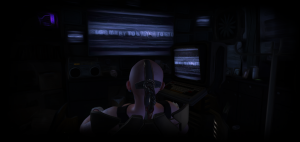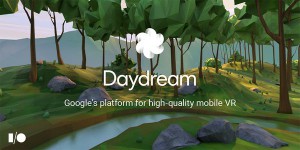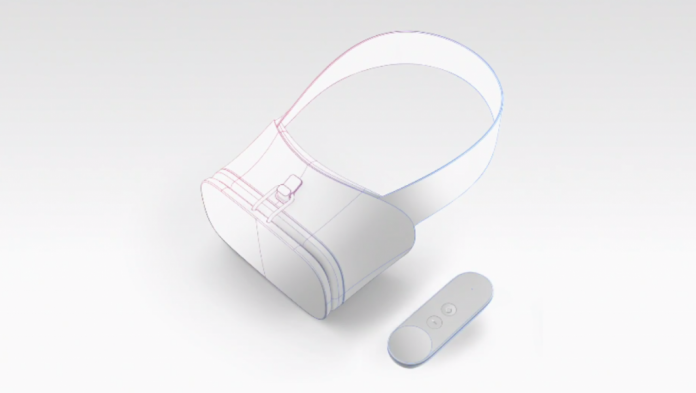Google’s announcement of the mobile virtual reality (VR) platform, Daydream, at Google I/O, Mountain View, today took many by surprise. While the company was expected to announce a new head-mounted display (HMD), few expected a potential rival to Oculus VR and Samsung’s collaboration for the Gear VR. However, for any platform to succeed quality content is necessary, and so VRFocus turned to the VR development community to gauge their reactions.
E McNeill, an independent developer having built a string reputation thanks to the Gear VR debut of his first VR videogame, Darknet, is surprisingly enthusiastic about the potential of Daydream: “This is great news! The Gear VR is the best entry-level VR headset on the market, and I’d love to see something at the same level of quality from Google, with the same marriage of quality and accessibility. I hope this means we’ll continue to see the mobile VR market exploding in popularity. As a consumer, I’m happy. As a developer, I’m thrilled!”
John Nagle, CEO at the recently opened Gyoza Games, offered similar positive sentiment: “With the launch of Daydream, Google is again further democratising VR, making it accessible to a vastly broader audience than was ever before possible,” stated Nagle in communication with VRFocus. “From a development perspective, including a controller and providing a ‘Daydream Ready’ hardware spec is a great advantage, because it means that we can focus on building great content instead of spending time and money developing and testing on so many disparate hardware platforms. Daydream truly has the potential to revolutionise the entry-level VR market.’
On the other side of the coin, Blair Renaud, CEO at IRIS VR, is less than enthused. Renaud’s TECHNOLUST has been a top performer in the Oculus Home sales charts for the early adopters of the Oculus Rift, while Kerser offered an entry-level experience with a low price point on Gear VR. Renaud doesn’t appear to keen on the idea of having to support yet another platform for his titles to reach the fullest of their potential market.
“My reaction is ‘Ugh… another HMD for the pile’,” stated a less than enthusiastic Renaud. “As an indie studio it’s getting really difficult to know where to put our focus. I’m told that there are 1 Million Gear VR users, but to be honest, our sales don’t reflect that number at all. I invested the better part of two years into developing for the Rift and I haven’t even come close to breaking even on that. Until I start to see real sales numbers on any of these platforms, I won’t have the ability to create new content for new HMDs. I’ll just be working to expand the titles that I have and port them to systems that will take them until the money starts coming in.”
Renaud will feature in VRFocus’ ‘VR Moments’ feature series tomorrow, wherein he will discuss his love for the medium. A sentiment that is echoed in his closing statement here, regardless of his feelings towards the quantity of HMDs appearing on the market: “I still love VR and have a million things I would love to create, but until there is money in creating software for them, I’m really not pleased to hear about a new device.”

Sam Watts of Tammeka Games, developers of Radial-G: Racing Revolved, is cautiously optimistic: “It certainly sounds exciting and a natural progression from Google Cardboard. Limiting handsets would make sense to guarantee performance for mobile and reduce negative reviews for apps. Having a controller in the box by default is a fantastic proposition since it offers developers a known input scheme; whereas we thought the controller would be more prevalent for Gear VR after the initial Note 4 Innovator’s Edition, but subsequent releases relied on the touchpad, reducing input control opportunities.”
Though Google has announced a number of partners for content production already, it is UK studio nDreams Ltd. that has been most vocal about their work for the platform thus far. Patrick O’Luanaigh, CEO at nDreams, offered the following statement to VRFocus:
“I’m incredibly excited by the announcement of Daydream today at Google I/O. Mobile VR is the fastest growing segment of VR, so it’s fantastic to see Google launching a new platform dedicated to delivering high performance apps and experiences in this important space. We’re delighted to be collaborating with Google on a couple of original titles, both designed to make the best use of Daydream’s innovative controller. Thanks to Daydream, I think we’ve all taken a big step forwards towards realising the dream of widespread VR adoption through our mobile phones.”

As is often the case, the reaction to a new HMD announcement from a key player has been met with a combination of excitement and trepidation. Enthusiasm for the medium doesn’t necessarily mean an unrealistic desire for every new potential piece of hardware, so while Google’s Daydream is an exciting opportunity for some, many may wish to test the waters before diving in with new development plans. As ever, VRFocus will keep you updated with all the latest from studios working with the Daydream HMD.















